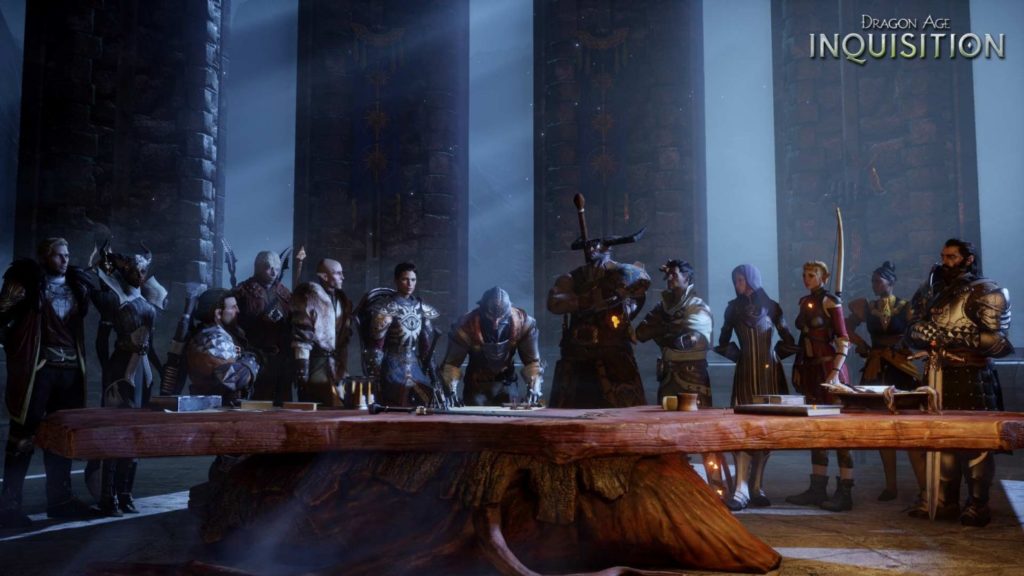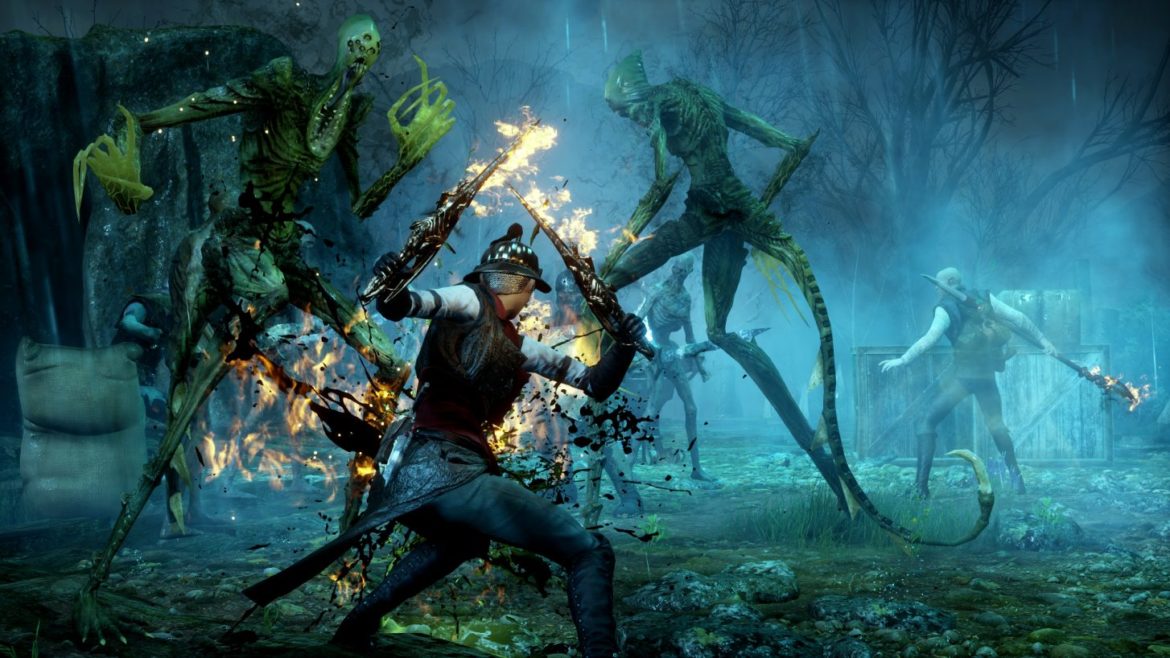There’s a bunch I like about Inquisition. Some of the storytelling offers impactful and emotive moments. A lot of the character work and dialogue is good – very good for a game – as you’d expect from Bioware. There’s even a coda to a side story that was genuinely funny (it involved a goat/wall interaction). I liked the ‘war room’ sections and the feeling it provides of being a real leader, despatching agents, diplomats and troops across the world map to rally support for your cause.
And, um… I mostly enjoyed my time with the game? I’m actually struggling to share many other specific positives, here. I admit most of my time playing the game was when I had covid. It’s a great game for occupying your brain between waves of feverish discomfort and pain rippling across your skin!
Whilst the combat can click, oftentimes it felt like an uncomfortable hybrid of action and tactical RPG. Most of the time I controlled only my own character and let the others do their thing. You can flip between your characters to control them directly, and the AI will take over anyone you’re not controlling. So you could conceivably pull off some combos here, if the AI hasn’t got something you want to use on cooldown. It would be easier to pull that stuff off in the tactical view, but you only set up orders there, and on console it’s pretty clunky and slow to use. I can’t imagine playing the game and using it a lot. Inquisition is already paced like a marathon. That combat mode would make it positively glacial.
There’s an anecdote in Jason Schreier’s book Blood, Sweat, and Pixels about Witcher 3‘s reception and BioWare. “…what was remarkable about The Witcher 3 was that very few of the quests felt like padding. Mateusz Tomaszkiewicz’s edict to avoid FedEx quests had been successful. Every quest in The Witcher 3 had some sort of complication or twist, as Tomaszkiewicz had requested, which was a design tenet that BioWare’s developers would later tell me they were hoping to use in their own games after Dragon Age: Inquisition.”
Well, without wanting to be too unkind, you can certainly tell they didn’t come across that idea before creating Inquisition. There’s a ton of filler and shit in here. A lot of really, really tedious shit. Kill obscurely spawning enemies until random drops happen. Move from A to B to C and read a little box of text at each location to complete quest. Gather resources as you run about the maps and watch the same two second animation every damn time. A lot of this filler could be ignored, yet I found myself grinding out this crap because (1) covid brain, and (2) you level up abysmally slowly and the story quests have level range recommendations, so I felt I needed the pittance of XP on offer from minor quests. The flipside is that I spent hours and hours doing what in gameplay terms is filler and in narrative terms is shit I absolutely should not have been doing.
I wanted to see out the main story, as I found myself invested in the overarching plot and some of the characters. But after sixty or seventy hours I felt I wasn’t even halfway through, whereas I was fully recovered from covid. I could tell that the game’s pace and core loops and quest structures weren’t going to change: I’d still be the mighty hero saving the world but also collecting herbs and animal skins and pressing the left thumbstick every two seconds to locate nearby items. So I ended my time with Inquisition carrying both good and bad memories, but more than either a sense of tedium and missed opportunity.


